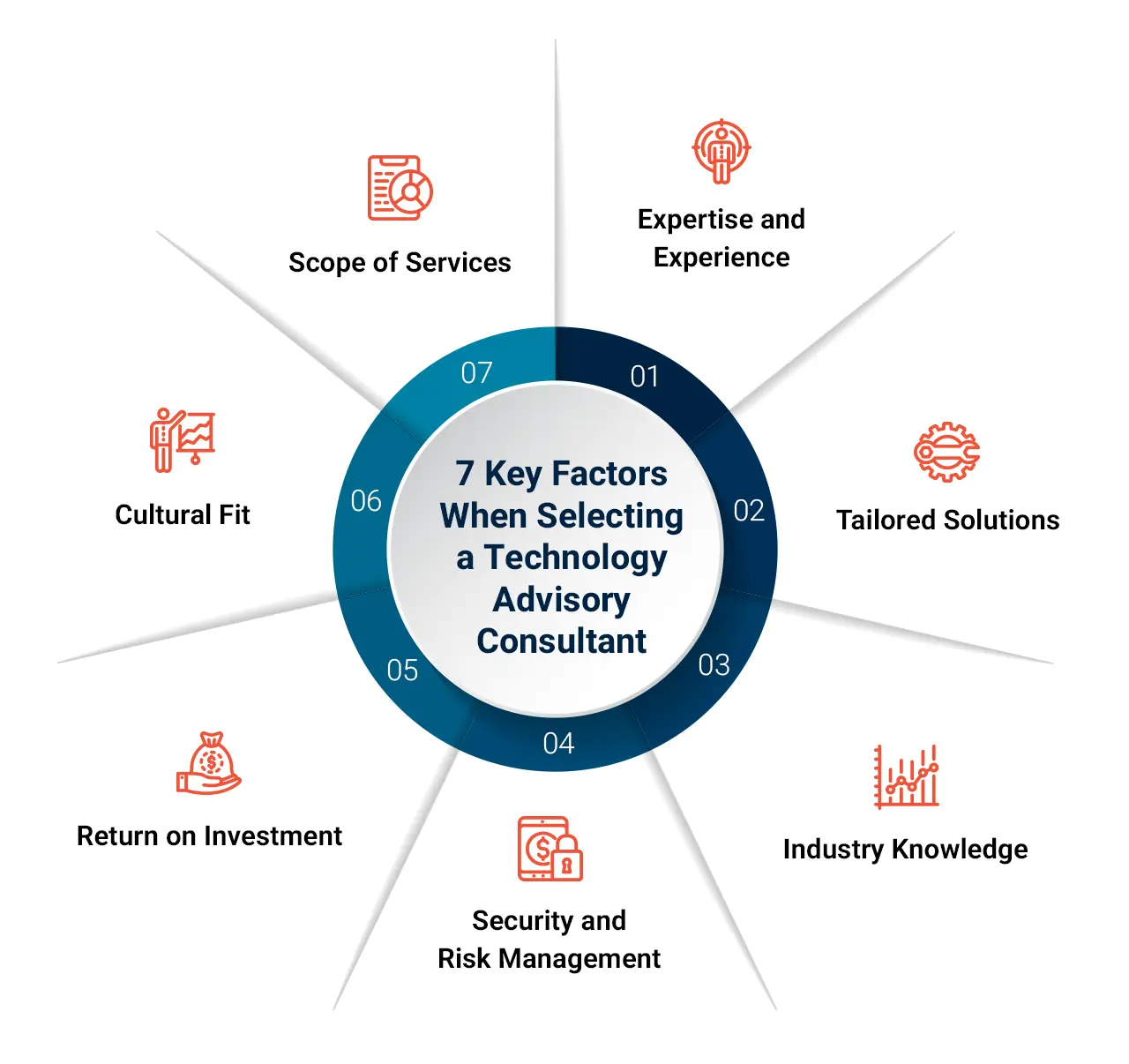

June 15, 2023 - by Synoptek
Are you determined to drive business growth and resolve internal issues but are uncertain whether to handle them internally or seek the expertise of a consultancy firm?
The global technology advisory market is witnessing remarkable growth, projected to reach $184.7 billion by 2027 with a CAGR of 3.4%. This growth can be attributed to the increasing demand for simplifying business operating models and effectively monitoring IT investments.
According to a study by Deloitte, 76% of executives surveyed reported that their IT services were delivered through third-party models. Over the past two decades, the IT industry has been at the forefront of embracing an ecosystem approach to service delivery. This shift, driven by the focus on value rather than cost efficiencies, has rapidly propelled the evolution toward a highly outsourced IT environment.

As businesses navigate the ever-changing technological landscape, the need for reliable and strategic technology advisory services becomes crucial. These services are instrumental in helping organizations make well-informed decisions, optimize their IT infrastructure, and successfully achieve their digital transformation objectives.
Technology Advisory Services offer several advantages to businesses:
In order to maximize the benefits and return on investment (ROI) of your initiative, selecting the appropriate Technology Advisory Consultant is crucial. To assist you in making an informed decision, we have compiled a guide outlining the vital parameters you should consider when choosing a technology consulting firm for your business.

One of the foremost considerations while selecting an IT advisory services firm is their expertise and experience. Evaluate their track record and credentials in delivering successful projects. Look for consultants who deeply understand your industry and possess specialized knowledge in relevant technologies. This ensures you benefit from their experience and insights specific to your business needs.
Every organization is unique, with its own set of challenges and requirements. Choosing a technology advisory consultant that offers customized and tailored solutions is crucial. A one-size-fits-all approach may not address your specific needs effectively. Consultants should take the time to understand your organization’s goals, processes, and culture to develop strategies and solutions that align with your business objectives.
Technology advisory consultants must stay updated with the latest industry trends and advancements. They should possess in-depth knowledge of emerging technologies and their applications in your industry. A consultant well-versed in industry trends can guide you in making informed technology decisions, ensuring your organization remains competitive and future-ready.
With technology comes inherent risks, including cybersecurity threats and data breaches. When engaging a technology advisory services firm, ensure they have robust risk management and security practices in place. They should conduct thorough risk assessments, implement security measures, and provide guidance on mitigating potential risks. A strong focus on security and data protection safeguards your organization’s sensitive information and preserves customer trust.
Technology investments can be significant, and organizations need to consider the cost and return on investment (ROI) associated with engaging a technology advisory consultant. Evaluate the pricing models, fee structures, and the value proposition offered by consultants. It is essential to strike a balance between cost-effectiveness and the value provided by their expertise and services.
A successful partnership with a technology advisory consultant relies on a strong cultural fit. Consultants should understand and align with your organization’s values, mission, and work culture. Effective communication, collaboration, and shared vision are vital for a fruitful working relationship. Assess their ability to integrate seamlessly with your internal teams and ensure a cohesive approach to achieving your technology goals.
Consider the breadth and depth of services the tech advisory firm offers. A comprehensive scope of services can provide end-to-end support, from strategic planning and technology selection to implementation and ongoing support. Evaluate their ability to address both short-term and long-term technology needs and their flexibility in adapting to changing requirements.
Selecting the right technology advisory services is crucial for organizations leveraging technology to drive success. By considering the key factors discussed above, such as expertise and experience, customization, industry knowledge, risk management, cost and ROI, cultural fit, and scope of services, organizations can make well-informed decisions.
Collaborating with a technology consulting services firm can empower organizations to navigate the complexities of technology adoption, streamline operations, accelerate business growth, and achieve their strategic objectives.
Start your journey now by selecting the ideal Technology Advisory Consultant for your organization!